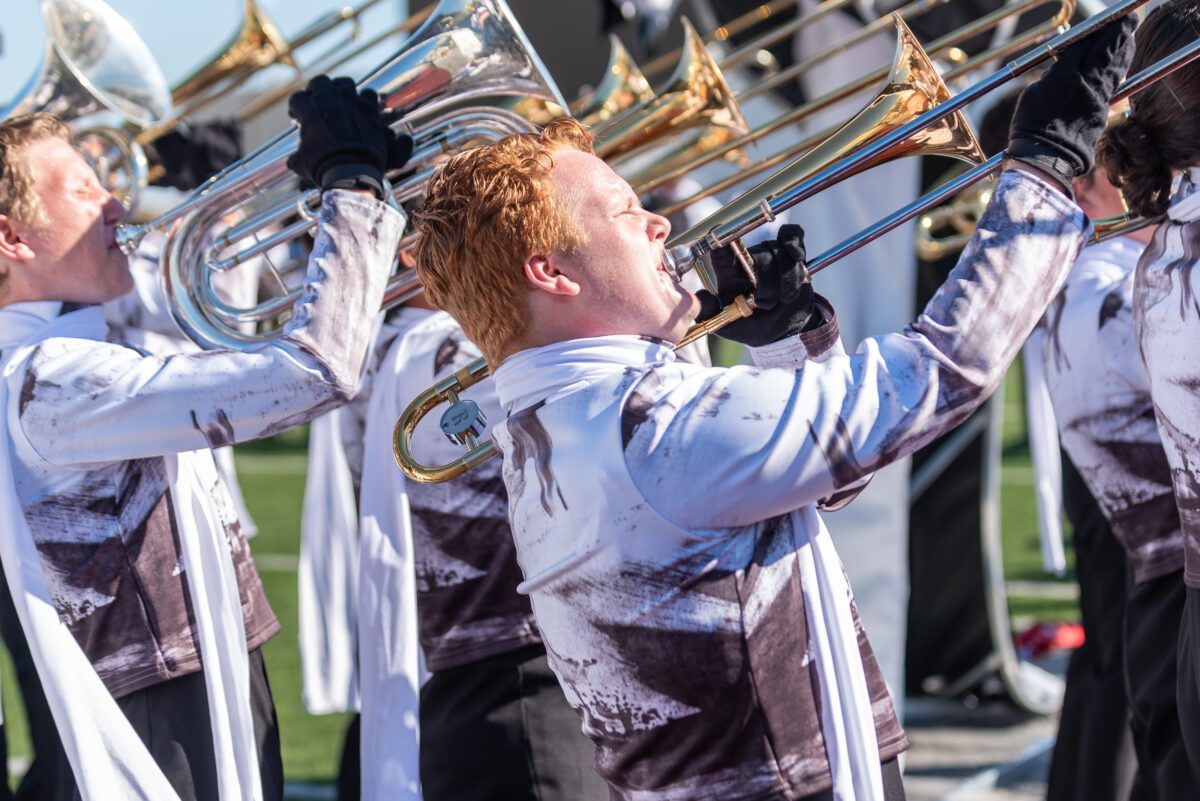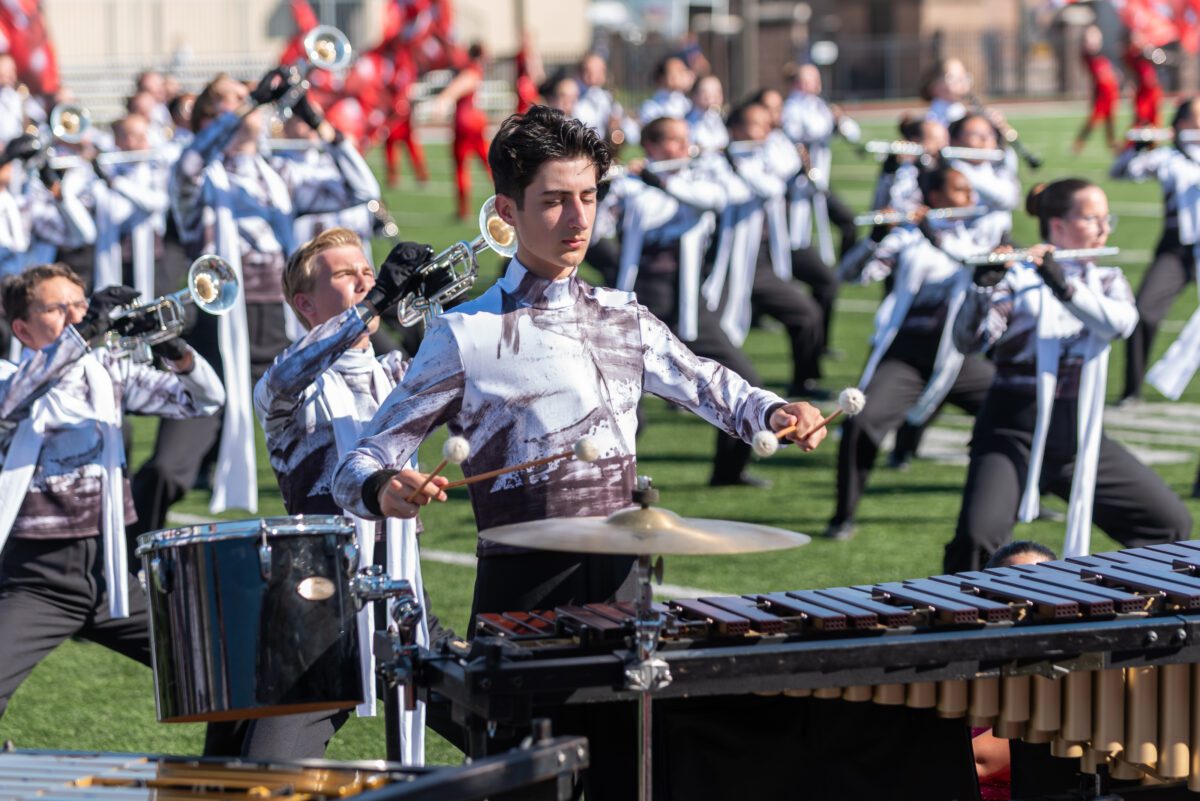Thousands of scientific and academic studies have shown that music education improves academic achievement, builds communication skills, develops teamwork and increases engagement in school.
However, these music programs are often very competitive, and tough to get into, says Scott Hillock, head director for the Trojan Pride Marching Band at Jenks High School.
“Marching bands are a big deal,” says Hillock. “They are highly inclusive with regard to performance elements and demand for any size school.”
If musicians make the cut, competitions are a major portion of time spent on the team.
“Most marching bands in Oklahoma go to several competitions throughout the marching season,” says Hillock. “Most schools go to local competitions, many compete at the state level, and there are quite a few schools that compete out of state on the regional and national stage. The healthy competition in the state has significantly raised the level of performance of marching bands.”
And these competitions aren’t a laid-back affair.
“Local competitions are intense, all-day events,” says Hillock. “Typically, students come to the band room about 8:00 a.m. and will leave the band room late at night to go home, somewhere around 12:30 a.m.,” says Hillock.

Jenks’ Trojan Pride marching band was recently selected to perform in the 2024 Tournament of Roses Parade. Photos courtesy Jenks Public Schools
The Jenks High School Trojan Pride marching band was one of a select group from around the world to perform in the 2024 Tournament of Roses Parade in Pasadena, Calif., on New Year’s Day. More than 200 bands apply every year for a chance to perform. This marks the second time in the last eight years that the Trojan Pride was selected.
Musical education reinforces all forms for cognitive learning – no matter the instrument the student chooses to play. According to Hillock, the trumpet and saxophone are the most popular.
“We are always wanting more mellophones and tubas to round out our sound,” says Hillock. “Our students have done a good job the last few years of learning a different instrument so that the band has the proper balance of instrumentation.”
Auditions
The try-out process to get into a competitive marching band can seem like a daunting process.
“First and foremost is playing their instrument, which includes technique, tone, style and musicianship,” says Hillock. Students have to show, no matter what instrument they play, that they have honed their marching skills, which includes moving their feet in time with proper technique while still playing on beat. Finally, the most recent element added to the repertoire has been choreography.
“This is still physical movement, but instead of just generic marching; this involves dance and body type movements that enhance the musical elements of the show,” says Hillock.
What Comes Next

Once a student “gets in,” scheduling and rehearsals are no joke.
“For away games, it’s a quick turn-around process that begins right after school. Students change into uniforms, load the equipment trucks, get their dinner – prepared by a parent organization – all in the first hour, and then load buses for departure as soon as they arrive,” says Hillock. “Once we get to the game site, it’s a quick turnaround again. We usually have 30 minutes to an hour to unload, set equipment in the stands, warm up and be ready to perform a pre-game show. Students have to stay on task and get all this done in a quick, efficient manner.”
Once the game begins, the band is playing throughout – supporting the team and amping up the crowd.
Once the game is over, “it’s load everything up, return to school, and unload late at night once we get back to school,” says Hillock.






















